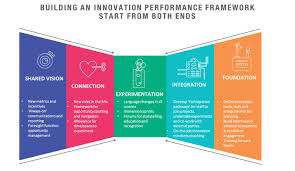Introduction
Fundamental ideas in education, individual growth, and organizational development are core learning and inquiry. Both of these cover the continuous processes of learning about, adjusting to, and experimenting with the environment we live in. While exploration denotes the search for new information, experiences, and viewpoints, core learning refers to the fundamental knowledge and abilities necessary for success in any subject. These two ideas work well together to promote practical, emotional, and intellectual development. How people, organizations, and civilizations advance in a variety of fields, including business, science, technology, and education, is influenced by the link between core learning and exploration.
We will go into the theory, significance, techniques, and creative approaches underlying core learning and inquiry in this piece. We’ll look at how they interact, especially how exploration improves fundamental knowledge and how Both are necessary for both professional and personal growth. We will also talk about how new technologies like machine learning and artificial intelligence (AI) are helping to assist and facilitate these processes.
Understanding Core Learning
The basis on which knowledge, abilities, and competences are constructed is known as core learning. These are the fundamental components required to overcome obstacles in life, including problem-solving, critical thinking, and practical skills. In educational and professional training programs, core learning frequently corresponds with curriculum frameworks. In a larger sense, it may consist of:
- Basic Knowledge: Essential information in a variety of subjects, including language, science, arithmetic, social studies, and history. The foundation of more specific knowledge is made up of the facts, theories, and principles that these fields offer.
- Cognitive Skills: Effective information processing depends on fundamental cognitive abilities like reading comprehension, mathematical reasoning, and analytical thinking. These abilities allow people to use their knowledge and solve difficulties in a variety of situations.
- Emotional and Social Skills: Emotional intelligence, social interaction, and interpersonal skills are all part of core learning, which goes beyond academics. These soft skills are essential for teamwork, personal growth, and negotiating the challenges of contemporary living.
- Core Values: Education and learning are about more than just acquiring information; they are also about fostering virtues like compassion, honesty, fortitude, and moral accountability. In both personal and professional contexts, these values influence choices and behaviors.
The Role of Core Learning in Education
The foundation of educational systems around the world is core learning. Usually, competency frameworks and national or regional curricula serve as its representatives. Core learning gives students the fundamental skills and information they need to enter the job or pursue higher education in schools, colleges, and technical institutes.
A solid foundation in key courses helps kids succeed academically and adjust to life’s obstacles, as educational research continuously shows. For example, emotional intelligence supports effective communication, teamwork, and leadership, while literacy and numeracy proficiency enables students to comprehend difficult ideas in scientific and humanities courses.
Core Learning in the Context of Lifelong Learning
Formal schooling is not the end of core learning. In the quickly evolving world of today, lifelong learning has become crucial. As people learn new things and adjust to new situations, tools, and methods, their core learning abilities change. Formal education, workplace training, independent study, and personal discovery are all components of lifelong learning, which keeps people flexible and current in their line of work.
The Concept of Exploration
Exploration is the pursuit of novel knowledge, insights, and concepts. Exploration pushes people to go beyond the known and try new things, whereas core learning stresses fundamental knowledge and abilities. Innovation, fresh discoveries, and ongoing personal development are the results of this dynamic process.
There are various ways to do exploration:
- Intellectual Exploration: Intellectual exploration is the search for novel concepts, hypotheses, and studies in a range of academic disciplines. It encompasses inquiry-driven learning, scientific experimentation, and scholarly study that broadens our perspective on the world. People are encouraged to test the limits of current understanding and question what they already know through exploration.
- Physical Exploration: Physical exploration is the actual study of settings, whether by means of travel, outdoor pursuits, or hands-on experiments. Physical exploration enables people to learn about new cultures, ecosystems, and technologies, from historical exploration expeditions to contemporary environmental studies.
- Creative Exploration: Innovation and the arts both heavily rely on this type of investigation. Experimenting with various mediums, such as music, writing, painting, or digital media, is known as creative exploration. It involves taking risks in order to find novel approaches to communication, creation, and thought.
- technical Exploration: One of the main factors propelling innovation in the modern period is technical exploration. Investigating novel instruments, systems, and technologies that stretch the bounds of what is feasible is part of this. Technology is at the forefront of the exploration process, whether it is through developments in biotechnology, machine learning, artificial intelligence, or space research.
The Interplay of Core Learning and Exploration
Although exploration and core learning are separate, they are closely related. Exploration builds on core learning by questioning presumptions and promoting a deeper knowledge, whereas core learning serves as the basis for exploration.
Core Learning as the Launchpad for Exploration
In the absence of core learning, exploration would be aimless. For example, someone who lacks fundamental literacy and numeracy skills may find it difficult to critically assess information or carry out efficient research. Core learning gives people the skills they need to critically evaluate new knowledge and concepts and to explore more deeply.
Think about science: before conducting meaningful research, scientists must first master fundamental ideas in physics, chemistry, biology, and mathematics. Their investigation of intricate scientific issues broadens both their individual and societal knowledge by building on their foundational education.
Exploration Enhancing Core Learning
By enabling people to apply fundamental information in new circumstances, exploration enriches and improves core learning. It promotes critical thinking, problem-solving, and flexibility—all of which are necessary for success in the fast-paced world of today.
A student who learns fundamental mathematical concepts in the classroom, for instance, might enhance their comprehension by using these concepts in practical situations, like creating a new product or conducting data analysis. Through experience learning, fundamental ideas are reinforced and one’s capacity for critical and creative thought is reinforced.
In a similar vein, exploration fosters the growth of fresh emotional and cognitive abilities like curiosity, flexibility, and resilience. People who explore face obstacles, experience failures, and gain the abilities necessary to deal with ambiguity and uncertainty.
Innovative Approaches to Core Learning and Exploration
New approaches are being investigated to improve basic learning and exploration as the world grows more technologically advanced and interconnected. Learning is changing in both formal educational and professional contexts due to a number of new trends.
1. Project-Based Learning (PBL)
Project-Based Learning (PBL) is a cutting-edge teaching methodology that prioritizes experiential learning and active inquiry. PBL involves students working on real-world projects that combine problem-solving, creativity, and basic knowledge. For instance, using fundamental knowledge from environmental science, engineering, and mathematics, students could investigate sustainability by creating a green energy solution.
PBL promotes teamwork, dialogue, and critical thinking while meaningfully tying discovery and core learning together. Since students are actively involved in resolving real-world issues that call for creative investigation, it also promotes intrinsic drive.
2. Adaptive Learning Technologies
Artificial intelligence is used by adaptive learning technology to give students individualized learning experiences. After evaluating a learner’s present knowledge and abilities, these systems modify the material and degree of difficulty to suit their aptitude. This method encourages inquiry at a hard but manageable pace while guaranteeing that core learning is customized for each individual.
By providing individualized pathways that pique curiosity and encourage exploration, adaptive learning systems can assist students in delving deeper into subjects. These technologies guarantee that core learning stays interesting and pertinent by continuously evaluating and modifying learning experiences.
3. Gamification and Simulation-Based Learning
Learning may become more interactive and exploratory through the use of game mechanics and immersive environments in gamification and simulation-based learning. Gamified platforms frequently give students the opportunity to take on tasks, receive incentives, and discover new material in a friendly yet competitive setting.
Conversely, simulations immerse students in realistic situations where they can experiment with many outcomes depending on their choices. This method promotes in-depth learning and offers the chance to use fundamental knowledge in a dynamic yet regulated setting. Pilots can practice difficult maneuvers and decision-making, for instance, in flight simulators without the dangers of actual flying.
4. Collaborative Learning Platforms
Platforms for collaborative learning make use of peer and community engagement to improve fundamental learning and inquiry. These platforms facilitate knowledge sharing, idea sharing, and issue solving among professionals, students, and amateurs. People can collaborate on projects, share resources, and investigate new subjects using platforms like forums, wikis, and open-source collaboration tools.
Because collaborative learning exposes people to a variety of viewpoints and concepts, it stimulates curiosity. By encouraging peer-to-peer instruction and offering opportunities for practical problem-solving, it also enhances core learning.
5. Lifelong Learning and Microlearning
In a world that is changing quickly, lifelong learning is crucial, and microlearning is a cutting-edge strategy that allows people to keep learning and exploring throughout their lives. It is easier for students to frequently interact with new material when it is presented in little, digestible bits through microlearning.
For working people who want to increase their expertise without enrolling in time-consuming classes, this approach is perfect. By giving students ongoing opportunities to learn new subjects and expand on their foundational knowledge, microlearning promotes discovery.
The Role of Core Learning and Exploration in Professional Development
For professional development and success in the workplace, core learning and inquiry are essential. Employees who work for companies that promote a culture of ongoing learning and discovery are empowered to lead, innovate, and adapt.
1. Skills Development and Innovation
Core learning gives people the abilities they need to carry out their jobs well in the workplace. However, innovation in companies is fueled by exploration. Workers are more likely to lead change and come up with innovative solutions when they are encouraged to experiment with new technology, processes, and market trends.
To stay ahead of the curve in industries like engineering, technology, and healthcare, exploration is crucial. Innovative products, services, and tactics are developed by staff members who actively investigate new instruments, methods, and research.
2. Building a Culture of Curiosity and Growth
A culture of curiosity and development is fostered by organizations that place a high priority on core learning and inquiry. Businesses may create a workforce that is flexible, creative, and resilient by promoting ongoing education, motivating staff to try new things, and offering resources for professional growth.
By providing chances for both professional and personal development, these cultures encourage employee retention and satisfaction. Workers are more likely to be engaged and motivated at work if they feel encouraged to pursue their learning goals.
Conclusion
Two strong pillars that promote both professional and personal development are core learning and exploration. While exploration propels the search for novel concepts, experiences, and inventions, core learning offers the fundamental information and abilities people need to thrive. When combined, they produce a dynamic and ongoing learning process that enables people and organizations to prosper in a world that is constantly changing.
There has never been more opportunity for core learning and inquiry because to the development of new technologies, creative teaching approaches, and worldwide connectedness. Adopting these values can help us overcome challenging issues, open up new avenues for growth, and create a more inventive and creative future. Promoting an attitude of fundamental learning and discovery will be crucial in any field, including education, business, and personal growth. for negotiating the opportunities and difficulties of the twenty-first century.

Relevance Article:
https://alphalearning.online/virtual-classrooms-revolutionizing-education-in-the-digital-age/
External Resources:
https://www.crayon.com/my/campaign/aws-generative-ai/aws-generative-ai-ebook/
https://pi.education.asu.edu/resources/foundations-course/

Leave a Reply